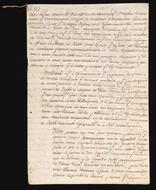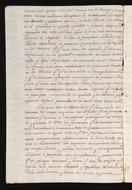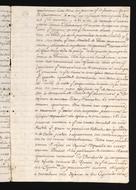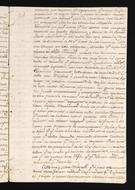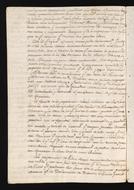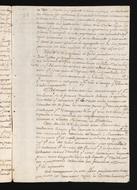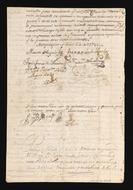KIS0001000107 Moquegua Manifesto
Title
Moquegua ManifestoAuthors
- Arguedas, Fernando de
Other related names
- Kislak, Jay I., former owner (http://viaf.org/viaf/100551485)
Call number
KIS0001000107(Coral Gables, Florida, University of Miami)
Alternate identifiers
- local-identifier: 2011.054.00.0001
Publisher
University of MiamiLanguage
Castilian, SpanishOrigin
- Place
-
Moquegua, Peru
Summary
On 24 July 1781 a group of prominent citizens in the city of Moquegua, Peru including the Corregidor, Fernando de Arguedas, the highest authority in the area, issued this eight-page manifesto suggesting fair and equal payment of contributions (local taxes, primarily a head tax) for the inhabitants. The proclamation was likely provoked by the fact that forces associated with Túpac Amaru's rebellion surrounded the region. The manifesto reads in part: "…As well as all the members that form the structure of the organic body are forced by a natural precept that emanates from their own principles to the competition and exercise of all the functions that are determined to their conservation, being interested reciprocally in the subsistence of that everything that they are parts, in the same way, being adapted the similarity allegorically, they are all the citizens without exception civil members of the social and political body of the state and consequently forced to incline to their conservation and increase for a natural precept and just that brings their origin and is derived of the first society or republic of the world. Of the subsistence and luck of the state depends equally that of all the parts that form it that they are the citizens, if these they don't influence with that virtue that constitutes it and gives the essence, the state is destroyed, and with it all the citizens. These are the intimate concessions that we have with this that we call state, it is already considered, in general, already in the peculiar of each town that is not another thing that a mutually united society of people and forced to be helped reciprocally, subjected to the yoke of the laws of any of the four main government forms."
Foliation
8 pp.Support
PaperProvenance
- Presented to the University of Miami in 2019.
Subjects topical
- Peru--History--Insurrection of Tupac Amaru, 1780-1781
- Moquegua, Peru
- Túpac Amaru, José Gabriel, 1738-1781
Keywords
- 18th century
Licenses
-
- Text
- These images and the content of University of Miami KIS0001000107: Moquegua Manifesto are free of known copyright restrictions and in the public domain. See the Creative Commons Public Domain Mark page for usage details, http://creativecommons.org/publicdomain/mark/1.0/.
- URL
- http://creativecommons.org/publicdomain/mark/1.0/
-
- Text
- Metadata is ©2019 Kislak Foundation and licensed under a Creative Commons Attribution License version 4.0 (CC-BY-4.0 https://creativecommons.org/licenses/by/4.0/legalcode. For a description of the terms of use see the Creative Commons Deed https://creativecommons.org/licenses/by/4.0/.
- URL
- https://creativecommons.org/licenses/by/4.0/legalcode

